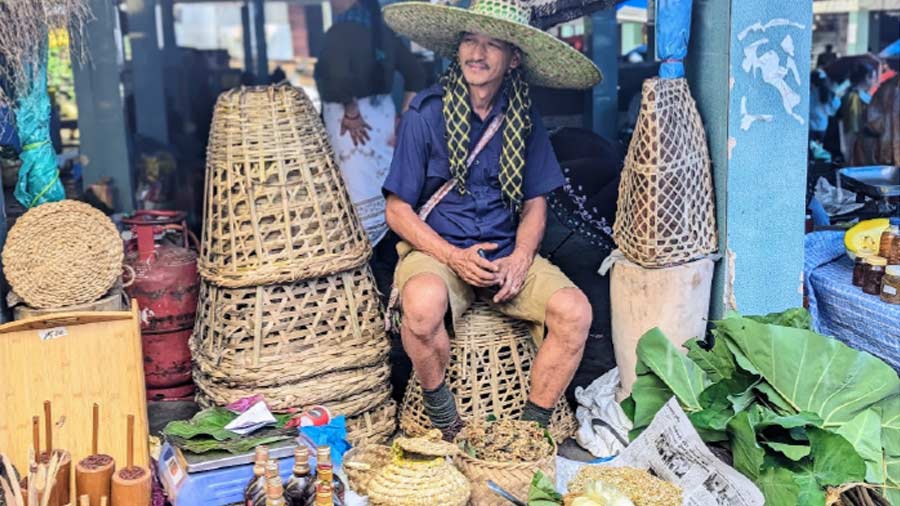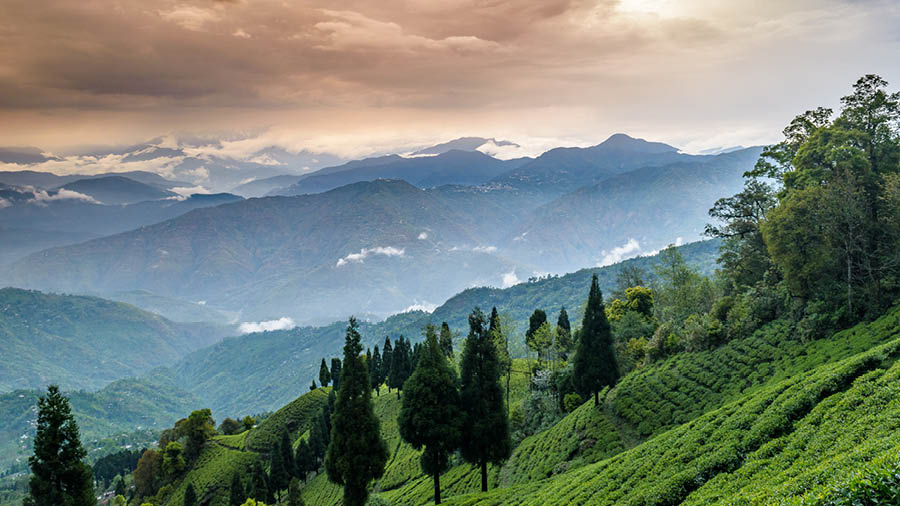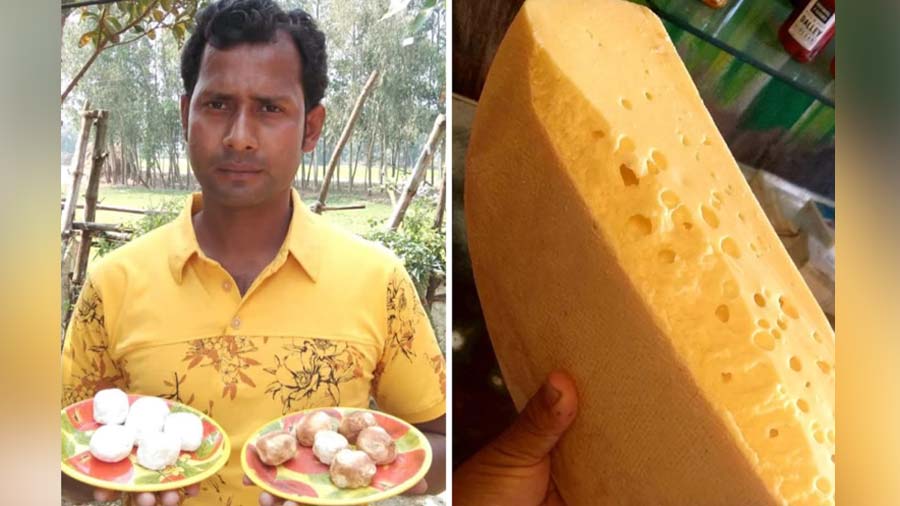I was invited to check out a place to run in Kalimpong, and found this an interesting opportunity to go explore something I knew very little about.
Kalimpong is a hill station in north Bengal known for its stunning scenery, its Tibetan culture, and its organic produce. I did not know that the Kalimpong Organic Haat would be such a great place to experience all three of these things.
Locally called Bihibare Haat, this market is held every Thursday morning in the main market called Haat Bazaar. It is a lively and colourful affair, with stalls selling a wide variety of organic fruits, vegetables, flowers, herbs, spices and other products. There are also stalls selling handicrafts, souvenirs and Tibetan food.
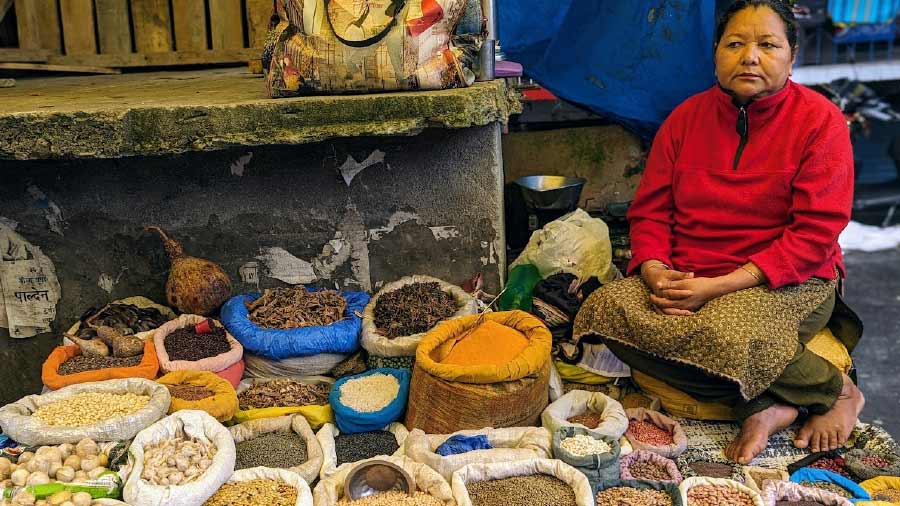
The market is held every Thursday morning in the main market called Haat Bazaar
One of the best things about the Kalimpong organic market is the opportunity to meet the local farmers and producers. These are people who are passionate about growing and selling healthy food, and they are always happy to talk about their products.
We were amazed that Kalimpong has managed to create such a big, thriving, successful organic weekly market, whereas Kolkata still has not. Here, organic produce seems to be the preserve of the rich and not as democratically distributed as up in the hills.
If you are looking for a delicious and nutritious meal, you can find plenty of options at the Kalimpong organic market. There are stalls selling freshly cooked momos, thukpa, and other Tibetan dishes. There are also stalls selling fresh juices, smoothies, and lassi.
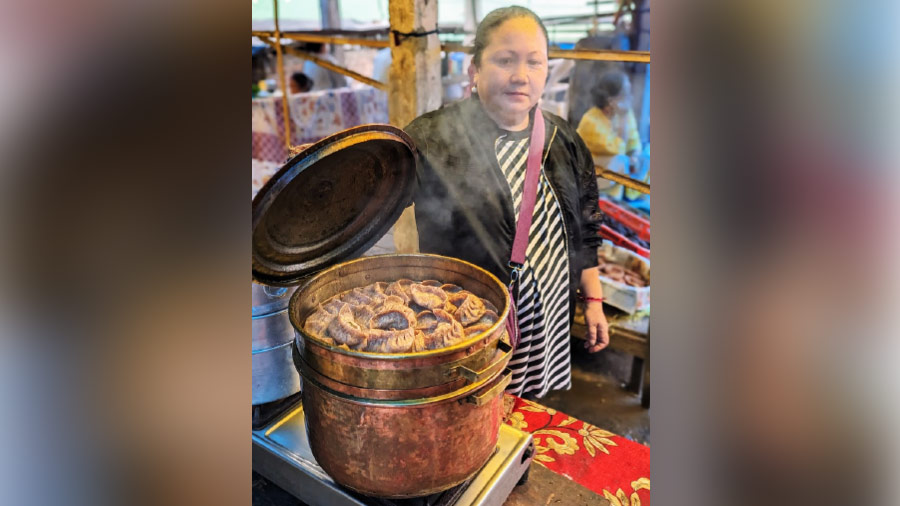
A stall selling momos
After you have eaten, you can take a walk around the town square and admire the views of the surrounding mountains. Or, you can visit the Kalimpong Museum, which is located nearby.
The Kalimpong organic market is a great place to spend a Thursday morning. It is a fun and informative place to experience the local culture and to buy fresh, healthy produce.
We were loaded by the end of our visit, with food, as well as organic sattu, ghee, churpi and honey.

A seller in traditional attire
Here are some tips for visiting the Kalimpong organic market:
- Go early in the morning, as the market is busiest in the first few hours
- Bring a reusable bag to carry your purchases
- Be prepared to haggle with the vendors
- Try some of the local food, such as momos, thukpa, and sel roti.
- Visit the Lepcha Museum after you have finished shopping.
I also had the chance to speak to two visitors to the Kalimpong organic market – Swarup Dutta, an artist and scenographer from Kolkata and Yachna Rizal, the co-owner of Kalimpong Art Cafe.
Swarup said, “My memories of Kalimpong were of a sleepy town between two tourist heavyweights — Darjeeling and Gangtok. I have lovely memories of Kalimpong, where I’d come to do my first craft documentation in 1996, when I was a student at NIFT. My first pictures with a DSLR were there at Kalimpong! There were many firsts!
On this trip, there was yet another first! Experiencing the first full-fledged market of local producers, organic vegetable growers, crafters, makers, cooks … perhaps the largest in all the whole of West Bengal. It is something that we dream of having in Kolkata!
My Santiniketan haat experience comes to mind, where a similar initiative was taken almost a decade and a half back.
What is refreshing about the Kalimpong experience is that it's by the locals for the locals! It’s not a haat for tourists only!
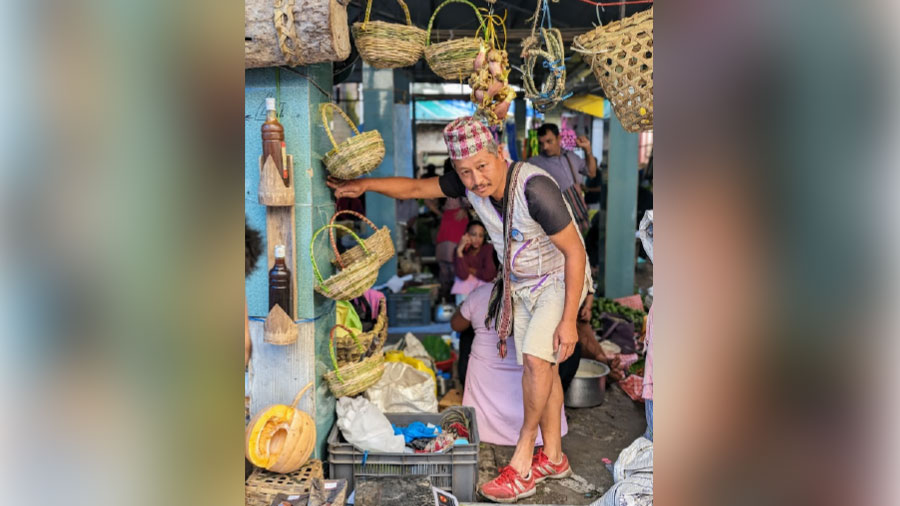
A vendor at his stall
I enjoyed many things: the fresh momos made of millet skin, local wood mortar and pestle (was looking for one to make Rildok at home), local copper and brass smiths, toolmakers, the millet sel rotis with cha. But most of all, the happy people behind the stalls!
It’s a lovely rainy morning spent well!”
Yachna, who is from Kalimpong, said, “In Kalimpong, many of us grew up enjoying farm-grown and organic vegetables and produce sold at the Haat Bazaar. Visiting the bazaar on Wednesdays and Saturdays is a weekly tradition that continues till today. However, with time, we noticed an increasing presence of non-farm-grown items being sold, which affected the opportunities for local farmers to sell their produce and limited our access to farm-grown and organic options.
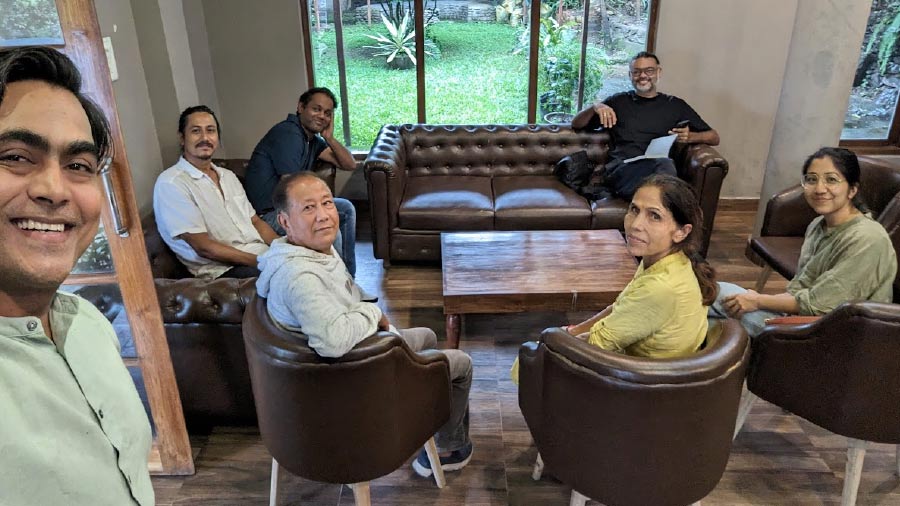
Yachna Rizal introducing us to her family at their home
To address this issue, the idea of Thursday Haat was introduced, specifically dedicated to selling locally sourced, farm-grown and organic produce. This initiative allows farmers to directly sell their products, ranging from local vegetables to honey to meat, grains etc, ensuring a focus on promoting local food and supporting sustainable agricultural practices.
“This initiative has not only revitalised and celebrated the diverse cultures within the local Nepali community, encompassing various castes, but it has also fostered a strong sense of solidarity. The focus extends beyond cultural revival, serving as a platform to educate the younger generation about their roots, which is especially crucial in today's modern world.
